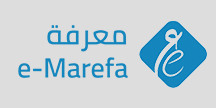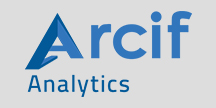The role of COSO framework in preventing earning management practice An analytical study of the opinions of a sample of Auditors & Accountants in banks- Erbil City
DOI:
https://doi.org/10.21271/zjhs.27.2.23Keywords:
Keywords: COSO framework, Internal control, earnings management, Banking Industry.Abstract
The main objective of this study is to determine the effectiveness of internal control according to the COSO framework for internal control contributes to reducing earning management practices in banking sectors in Erbil city from the point of view of auditors and accountants through quantitative measurement of variables.
The selection of the banking industry for this study came due to the importance of the banking sector and increased risks involved in earning management, in light of global competition and economic openness, For the purpose of this research, a quantitative methodology was applied. The data was collected through a questionnaire to test the hypotheses. 80 copies of the questionnaire were distributed to Two samples of professionals 70 valid questioners were returned. Using the analysis statistical package (SPSS) to validate and analysis of data.
Findings- the research found that there is a coefficient relationship between the dependent variable - the internal control system according to the COSO framework - and the independent variable - earnings management practices. The more efficient the internal control system, the more limited earning management practice. The study concludes with several suggestions; using this framework to guide the development of Internal Control to identify earning management practices, work to enhance employees’ skills working in field of internal control system through further training programs and workshops on prevent earning management.
References
• Abdul Rahman, A.,and Al-Dhaimesh (2018), The effect of applying the COSO-ERM model on reducing fraudulent financial reporting of commercial banks in Jordan, banks and bank system’s 13(2),p.107-115.available at: //www.researchgate.net.
• Akers, M., Giacomino, D. E., & Bellovary, J. L. (2007). Earnings management and Its Implications. The CPA Journal, 77, 64–69.
• AICPA. (2017). Accounting Guide: Brokers and Dealers in Securities, New York: American Institute of Certified Public Accountants.
• Akyel,R.(2010).“Türkiye’de İç Kontrol Kavramı, Unsurları ve Etkinliğinin Değerlendirilmesi”, Yönetim ve Ekonomi, 17 (1)
• Baralexis, S. (2004). Creative Accounting in Small Advancing Countries: The Greek Case. Managerial Auditing Journal, 19(3), 440–461
• Bertin,m.and a Iturriaga,f. (2005), Earnings Management and Internal Control Mechanisms: Evidence from Chilean Firms, researchgate.
• Chen,y., Li,j., and Wang,y.(2018), An Empirical Study on Internal Control and Earnings Management of China’s Listed Companies Based on the Modified Jones Model, International Conference on Management, Economics, Education and Social Sciences, available at: ://www.researchgate.net.
• COSO (1994), Internal Control-Integrated Framework, Committee of Sponsoring Organizations of the Treadway Commission, Coopers, and Lybrand, New York, NY.
• COSO (2013), Internal Control-Integrated Framework 2013, Committee of Sponsoring Organizations of the Treadway Commission, Coopers and Lybrand, New York, NY.
• COSO (2013). COSO Internal Control- Integrated Framework: https://www.coso.org/Doc unmints /COSO-CROWE-COSO-Internal-Control-Integrated-Framework.pdf (Erişim: 05.02.2020).
• COSO (2013) Internal Control-integrated Framework, Committee of Sponsoring Eatmon, N. & Baroque, O. A. Exploring the impact of internal corporate governance on the relation between disclosure quality and earnings management in the UK listed companies. Journal of Business Ethics, Vol. 18 (2015) No. 13, p.1-23.
• Degeorge, F., Patel, J., & Zeckhauser, R. (1999). Earnings management to exceed thresholds. Journal of Business, 72(1), 1–33. https://doi.org/10.1086/209601
• Kehinde Adekunle Adetiloye, Felicia Omowunmi Olokoy, & Joseph Niyan Taiw (2016). Fraud Prevention and Internal Control in the Nigerian Banking System. International Journal of Economics and Financial Issues, 6(3), 1172- 1179. Retrieved from https://www. econjournals.com/index.php/ijefi/ article/viewFile/2035/pdf
• Oguda N. J., Odhiambo, A., & Byaruhanga, J. (2015). Effect of Internal Control on Fraud Detection and Prevention in District Treasuries of Kakamega County. International Journal of Business and Management Invention, 4(1), 47-57. Retrieved from http:// www.ijbmi.org/papers/Vol(4)1/ F041047057.pdf
• Manale A., Khalil F. and Mona Z. (2021) “The role of emotional intelligence and personality on the overall internal control effectiveness: applied on internal audit team member’s behavior in Lebanese companies” Asian Journal of Accounting Research, Issue: 1, Volume: 6, p1-13.
• Spira, L.F. and Page, M. (2003), “Risk management: the reinvention of internal control and the changing role of internal audit”, Accounting, Auditing and Accountability Journal, Vol. 16 No. 4, pp. 640-661, doi: 10.1108/09513570310492335.
• Sonda Wali, Sana Mardessi Masmoudi,(2020), Internal control and real earnings management in the French context, Journal of Financial Reporting and Accounting, Volume 18 Issue 2.
• Wali, S. and Masmoudi, S.M. (2020), "Internal control and real earnings management in the French context", Journal of Financial Reporting and Accounting, Vol. 18 No. 2, pp. 363-387. https://doi.org/10.1108/JFRA-09-2019-0117.
• Yousef J. and suman, N., 2015, Earning management, weak internal controls, and firm size, volume 7 no 2, p1944-592, available at: www.theibfr2.com
Downloads
Published
How to Cite
Issue
Section
License
Copyright (c) 2023 Shadan Jabbar Abdulfattah

This work is licensed under a Creative Commons Attribution-NonCommercial-ShareAlike 4.0 International License.
Except where otherwise noted, content on this site is licenced
under a Creative Commons Attribution License 4.0 (CC BY- 4.0)










